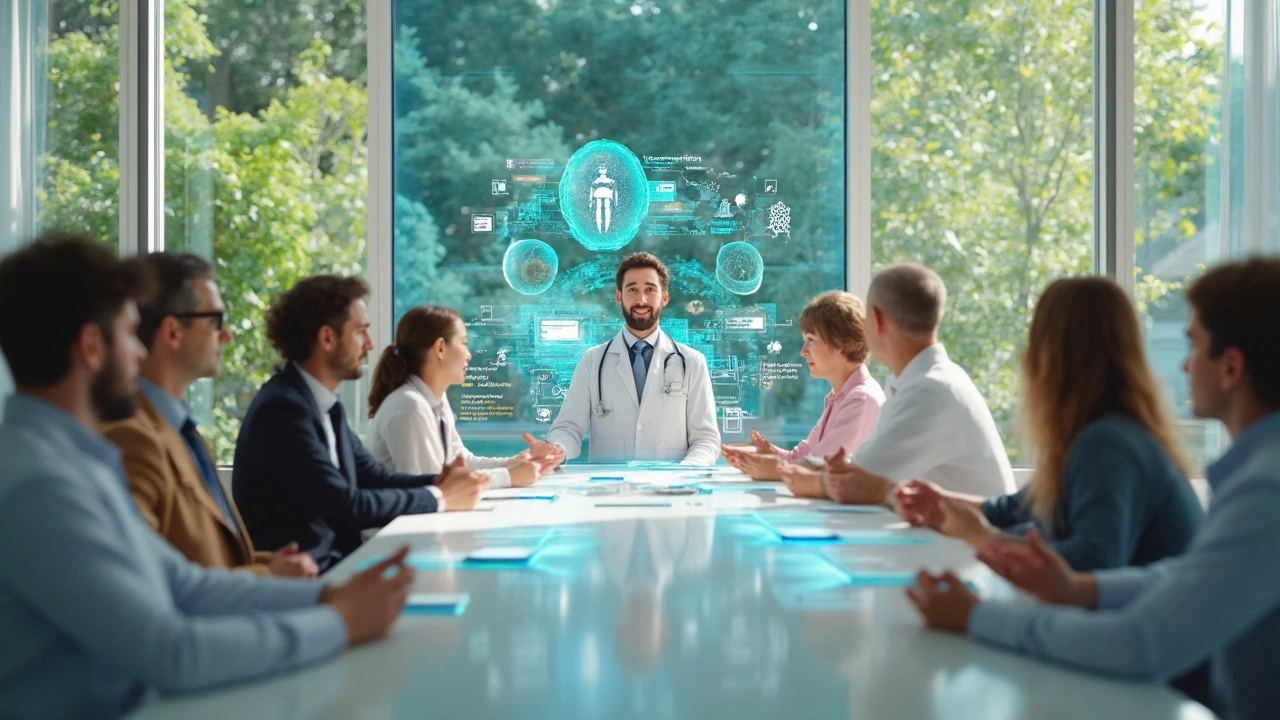If you’re dealing with hypothyroidism, the choices in 2025 can feel overwhelming. The good news is that there are a few clear options and some simple steps you can take to keep your hormones stable. Below we break down the most common meds, how they differ, and what everyday habits help you stay on track.
Natural desiccated thyroid (NDT) is made from pig thyroid glands and contains a mix of T4 and T3 hormones. Many people say it feels more “balanced” because the body gets both forms at once. Levothyroxine, on the other hand, is a synthetic version of just T4. Your body must convert T4 to T3, which can be slower for some folks.
When you start NDT, doctors usually begin with a low dose and adjust based on symptoms and blood tests. With levothyroxine, the starting dose is often higher, especially if your thyroid levels are very low. Both drugs require regular monitoring – typically every 6‑8 weeks until stable, then once or twice a year.
Side effects can overlap: headaches, insomnia, or heart palpitations may happen with either drug if the dose is off. NDT users sometimes report smoother energy swings, while levothyroxine users often appreciate the precise dosing options that come in 25‑microgram increments.
1. **Check your labs regularly** – TSH, free T4, and free T3 give a full picture. Ask your doctor to look at all three, not just TSH.
2. **Mind your timing** – Take your pill on an empty stomach, usually first thing in the morning, and wait 30‑60 minutes before coffee or breakfast. This helps absorption.
3. **Watch food interactions** – Soy, high-fiber meals, and calcium supplements can lower how much thyroid hormone gets into your bloodstream. If you need these foods, keep them at least four hours apart from your dose.
4. **Stay active but avoid overtraining** – Light exercise boosts metabolism, but intense workouts can stress the adrenal system and make symptoms worse.
5. **Track symptoms** – Use a simple notebook or app to record energy levels, mood, weight changes, and any side effects. This data helps your doctor fine‑tune the dose faster.
6. **Consider supplements wisely** – Selenium and zinc have been shown to support thyroid conversion. Talk to your pharmacist before adding them.
7. **Know when to switch** – If you’ve tried a med for six months with no improvement, discuss alternatives. Switching from levothyroxine to NDT (or vice versa) is common and can make a big difference.
Remember, thyroid treatment isn’t one‑size‑fits‑all. The best plan blends the right medication, steady lab checks, and everyday habits that support hormone balance. Keep the conversation open with your healthcare provider, stay curious about new research, and trust how you feel day to day.

In 2025, the landscape of hypothyroidism treatment offers a range of alternatives to Synthroid. These options cater to diverse patient needs, from synthetic solutions to natural remedies. This article delves into ten compelling alternatives, examining their benefits and drawbacks. With personalized medicine gaining momentum, understanding these options empowers patients to make informed choices in collaboration with their healthcare providers.
Learn how to safely purchase cheap generic ivermectin online in 2025, with price checks, pharmacy verification steps, and a detailed FAQ.
ACE inhibitors and ARBs are the cornerstone of treatment for diabetic nephropathy, reducing proteinuria and slowing kidney damage. Maximal dosing is key-low doses offer little protection. Learn when to use them, when to avoid combinations, and how to handle creatinine changes.
In my recent dive into medical research, I stumbled upon a controversial topic: the potential link between Amlodipine, a common high blood pressure medication, and cancer. Several studies have surfaced suggesting a possible association, but the evidence is inconsistent and not yet fully understood. It's essential to remember that correlation does not imply causation, so while this topic definitely warrants further research, there's no need for panic. If you're currently taking Amlodipine, don't stop or change your medication without first discussing it with your doctor. Stay tuned as I continue to monitor this ongoing discussion.
Learn how switching to an authorized generic can improve medication safety and reduce side effects compared to regular generics - and how to make sure you get the right version at the right price.
Abdominal distension can turn a great day into a disaster, but probiotics might just be the underrated tool your gut needs. This article dives into how probiotics can actually help reduce bloating and swelling by changing your gut’s bacterial landscape. I'll explore specific strains, explain what real evidence says, and unpack simple habits to keep your digestion happy. You'll learn who benefits most, what mistakes to avoid, and how small changes can add up. Get ready for tips straight from the science to your everyday life.